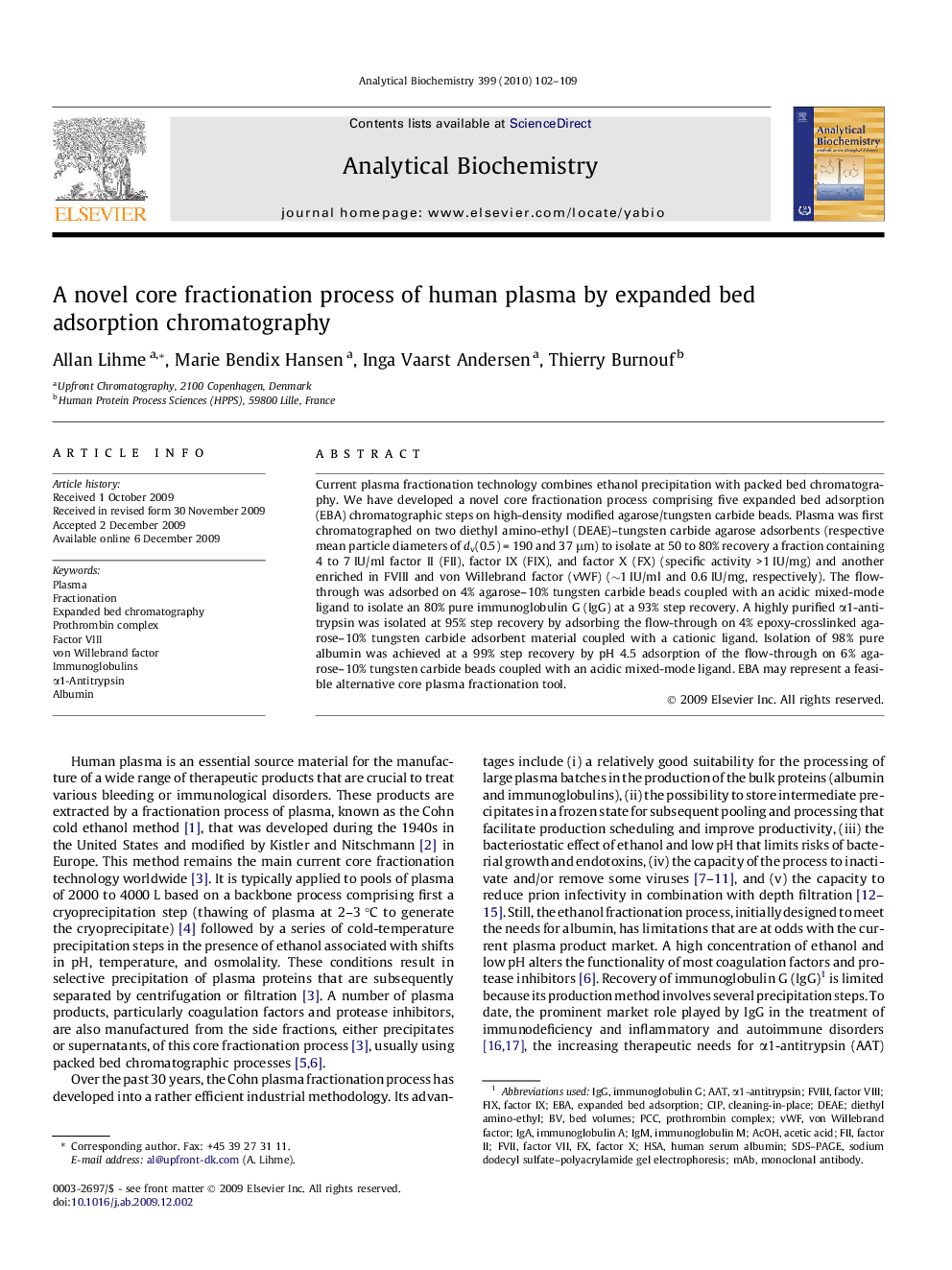| Article ID | Journal | Published Year | Pages | File Type |
|---|---|---|---|---|
| 1175352 | Analytical Biochemistry | 2010 | 8 Pages |
Current plasma fractionation technology combines ethanol precipitation with packed bed chromatography. We have developed a novel core fractionation process comprising five expanded bed adsorption (EBA) chromatographic steps on high-density modified agarose/tungsten carbide beads. Plasma was first chromatographed on two diethyl amino-ethyl (DEAE)–tungsten carbide agarose adsorbents (respective mean particle diameters of dv(0.5) = 190 and 37 μm) to isolate at 50 to 80% recovery a fraction containing 4 to 7 IU/ml factor II (FII), factor IX (FIX), and factor X (FX) (specific activity >1 IU/mg) and another enriched in FVIII and von Willebrand factor (vWF) (∼1 IU/ml and 0.6 IU/mg, respectively). The flow-through was adsorbed on 4% agarose–10% tungsten carbide beads coupled with an acidic mixed-mode ligand to isolate an 80% pure immunoglobulin G (IgG) at a 93% step recovery. A highly purified α1-antitrypsin was isolated at 95% step recovery by adsorbing the flow-through on 4% epoxy-crosslinked agarose–10% tungsten carbide adsorbent material coupled with a cationic ligand. Isolation of 98% pure albumin was achieved at a 99% step recovery by pH 4.5 adsorption of the flow-through on 6% agarose–10% tungsten carbide beads coupled with an acidic mixed-mode ligand. EBA may represent a feasible alternative core plasma fractionation tool.
